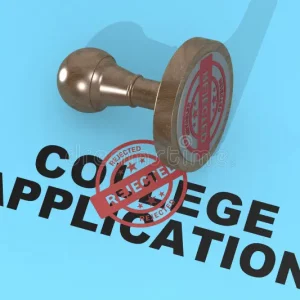To Jack Phillips, his cake is his canvas. From his intricately designed cakes and pastries, it is easy to see that his baked goods display a high mastery of skill. He considers his pastries to be his art, and his store to be a private entity reflective of his values. The question is, does his “art” and religion give him the right to discriminate? Masterpiece Cakeshop v. Colorado Civil Rights Commission has once again taken the stage. This time, it’s advanced to the Supreme Court, and will now determine how the nation should approach conflicting values.
The Masterpiece Cakeshop case is uniquely important, not only in its timely nature that will define LGBTQ rights moving forward, but also because it brings forth the question of how we should allow our progressive values to coexist with our constitutional rights.
This highly anticipated Supreme Court case reflects tensions between the first amendment and a western democracy’s egalitarian principles. It involves a Colorado baker- Jack Phillips(The plaintiff)- who refused to serve a same-sex couple on the first amendment grounds of free expression and the exercise of religion. The Court should recognize the first amendment’s longstanding restrictions, as well as the importance in creating a society in which all can thrive.
The plaintiff claims that the anti-discrimination statute violates his freedom of speech and religion. Phillips argues that his cake baking is his art, and his art, along with freedom to express his religious beliefs should be protected. As a Christian man, he does not want to be responsible for facilitating a same-sex marriage ceremony. To Philip, however, this case extends beyond the implications for his business. “I’m being forced to use my creativity, my talents, and my art for an event- that violates my religious faith,” he said. He views it as a case that can properly set limits on government. [1]
The “freedom of religion” argument, for the most part, holds merit. The motivations for his actions stem from his readings of the Bible, and the plaintiff believes that by baking a cake for a homosexual couple, he would be supporting a union that was against his religion. Baking a cake is not inherently a religious act, but the motivations behind doing so is what defines it as a free exercise issue.
However, his argument falls short in his contentions with a completely secular law. The baker does not have the ability to use “freedom of religion” to act with complete disregard. The Supreme Court case Employment Division of Oregon v. Smith serves as an extreme but valid example. The court ruled that the use of Peyote, which was part of Native American Church rituals, was not acceptable even under free exercise of religion. Because the Oregon anti-drug law was secular in nature and applied to all people equally, the state law was declared constitutional. As stated by Justice Scalia, allowing exceptions to every state law or regulation affecting religion “would open the prospect of constitutionally required exemptions from civic obligations from almost every conceivable kind.” The laws in our country range from restricting use of fire in certain areas to time, place, manner restrictions on speech, all of which can potentially limit someone’s freedom to practice their religion. Religion is so diverse, complex, and personal that someone’s rights might be violated by even the most mundane laws. It cannot always be used as an excuse to avoid basic state codes that are, in its foundation and application, secular.
The Colorado Court of Appeals ruled that the Colorado Anti Discrimination Law is a “neutral law with general applicability.”[2] While CADA would allow Phillips to refuse a cake due to a revolting message, it is not the same as “denying a service to an entire group of patrons based on their membership to a particular class.” As Professor Terry Day and Danielle Weatherby argue, Phillips seems to conflate the two- his “blanket refusal to all same sex couples because of their sexual orientation, with baking a cake with a message that he would find ‘morally reprehensible’.”[3]
This balancing act between equality and constitutional rights has long been contended through history. Political ideologies have only inched in the last 50 years- libertarians still worry about unsubstantiated government overreach, whereas to liberals such government overreach is needed to further the values of democracy. There is undoubtedly a political element to this debate, but there does not need to be anything political about something as basic as an anti-discrimination statute. Anti-discrimination and anti-hate laws are often portrayed to exist for the sole purpose of violating one’s freedom of speech, when people often forget that we have similar laws restricting speech to maintain public order and safety.
This case varies from most in that it pits two very important principles against each other: free speech with social equality. Freedom of expression, and especially freedom of religion, are two of the many pillars that uphold this country. But, there are longstanding limitations that have been instituted so that all pillars are able to stand together.
Because of the need to cultivate an efficient and orderly community, constraints are placed on businesses. The duties of business owners and “public accommodations”(any business open to the general public) can be traced all the way back to English common law. Judge Lord Holt, Chief Justice of England from 1689 to 1710, stated that there is a “common law” duty to serve the public without discrimination as business is a “profession of a trade which is for the public good.”
This principle is later echoed in the 1964 Supreme Court Case Heart of Atlanta Motel v. United States, where private racial discrimination in public accommodations was struck down. The Court argued that the Commerce Clause gives Congress the power to monitor interstate and intrastate commerce, as well as “operations that affect commerce.” There already are laws monitoring the actions of public accommodations. It has been understood that when an individual decides to open their store to the public, then it is not only their liberties that must be considered. The societal implications and the public good are also important factors to examine when deciding on the legality or morality of an action.
If the past Robert’s Court cases are to indicate anything, it seems likely that the Court will rule in favor of Phillips. The rights of corporations and their owners have been given priority over the past decade. Hobby Lobby v. Burwell recognized a Corporation’s right to freedom of religion whereas Citizens United v. FEC recognized a corporation’s right to freedom of speech. The burden of this case falls on Justice Kennedy, the swing vote. If Masterpiece were to be decided a similar way- with the Court agreeing with Phillip’s first amendment argument- this would lead to the loosening of some states’ anti-discrimination laws. Businesses would then be able to claim any commercial activity as an “art”. Whether it be hairdressing or housecleaning, there would be justifiable ground to discriminate against any LGBT group because of religious beliefs.
Balancing the different values of this country poses a timeless struggle. It’s important not to assume these values are always diametrically opposed when they, at the core, share the same function. Ultimately, the Constitution, state codes, and civil and political institutions serve one purpose: to facilitate social order. Whether this is through giving rights to individuals, or restricting their actions, they work to maintain a stable,efficient, and safe society in which everyone can thrive.
[1] Liptak, Adam. “Cake Is His ‘Art.’ So Can He Deny One to a Gay Couple?” The New York Times, The New York Times, 16 Sept. 2017, www.nytimes.com/2017/09/16/us/supreme-court-baker-same-sex-marriage.html.
[2] Singer, Joseph William. “Joseph William Singer.” Supreme Court Will Decide Whether a Bakery Must Sell Wedding Cake to a Same-Sex Couple as Required by Colorado Public Accommodations Law, Harvard Law School, scholar.harvard.edu/jsinger/blog/supreme-court-will-decide-whether-bakery-must-sell-wedding-cake-same-sex-couple.
[3] Day, Terry R., and Danielle Weatherby. “Contemplating Masterpiece Cakeshop.” Washington and Lee Law Review Online, Washington and Lee University, 8 Aug. 2017, scholarlycommons.law.wlu.edu/cgi/viewcontent.cgi?article=1084&context=wlulr-online.
Featured Image Source: https://img1.etsystatic.com/165/1/13963654/il_340x270.1124605649_h2c9.jpg






2 Comments